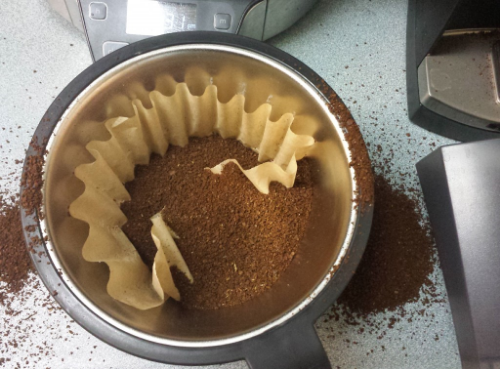My first “real” job was in a restaurant. When I was 15 years old I began working as a cashier, with the grand dream of being a chef. I began learning how to take money, take an order, talk to customers, and expedite orders. Customer service was the first thing you learned, and it was not optional.
This is where everyone started working for the restaurant. If you couldn’t do something as simple as help customers with their needs, then you might be relegated to scrubbing toilets before eventually being let go. When I made mistakes I was scolded, sometimes yelled at, but corrected for essentially being ignorant of how and why things were done.
As time passed I learned. I learned how to serve people better, anticipate needs, and how to exceed their expectations whenever possible (note: it’s not always possible). This was my introduction to food service and customer service. I wanted to be a chef, and somehow that started by making sure the older gentleman who looks like it might be his last day on this beautiful earth got exactly the right mix of Extra Tasty Crispy and Original Recipe chicken.
Yes, my first job was at KFC.
It was quite an experience
A strange start to a successful coffee career to be sure, but perhaps it helps tell a narrative. Today the topic is connecting to the customer in the coffee industry.
Recently I have been bombarded with the topic of how we can start giving better service. Usually the first thing to go through my head is “Why were you not giving great service in the first place?” My opinion is that we are a part of the “service industry”, which means that we rely on customers who ask a service of us (preparing tasty coffee) and then pay for that service. Clearly in the coffee industry we do a whole lot more than just make tasty coffee. However, customers generally always want two things: tasty coffee and a pleasant interaction. Some people want more coffee geekery, some want to chat about the weekend, and some just want to get some “wake-up juice” and not think about it. The key is to look from the consumers’ point of view. I usually use a great bar as an analogy.
Think of a great bartender. He or she might be mixing, shaking, pouring, straining, zesting, twisting, or otherwise doing prep work. The ones that come to my mind are quite professional, but completely friendly. If you order a standard cocktail they don’t roll their eyes at you, but they might ask if you want a particular brand of the spirit in the drink. They might even tell you a couple of interesting things about your drink or the ingredients in it, but that is about all unless you are asking more detailed questions. The bartender is the gatekeeper of knowledge. The great ones are bubbling with knowledge and more than happy to talk about the technical details if you are interested. They do something that is crucial though.
They read you.
The great bartender starts by making you feel good, then adjusts to you depending on where you want to go. When was the last time you woke up and instantly thought to yourself “Boy I could really go for a cup of coffee and a lecture about why it is so great!”? Take a note from the great bartender and start trying to read your customers. They will love it.
Reading people is a skill that must be honed. In respect to standard cafe service, I think of four general types of customer “reads”. Clearly every person is different, and there are many variations on this idea, but this is a good start.
Image courtesy of Yazmin Alanis González
The Zombie
If you are not a morning person, chances are this has been you at some point in your life. I know I have. The zombie is generally still in the process of waking up. His/her social skills tend to range from snarky to incomprehensible, but the real tell is the overwhelming disdain for loud music, technical data, and the existence of sunlight. In the latter case the term “vampire” may be appropriate.
The zombie is in desperate need of coffee, and to deprive them of this life-nectar is clearly an exercise in cruelty. Sometimes the best interaction is to get to know their regular drink and just ask “the usual?”. Their primary concern is quick caffeination, but don’t mistake this for a lack of care about quality. The zombie can sometimes magically transform into “The Casual Enthusiast” or “The Friendly Consumer” later in the day. And if you think about it, you may have had something to do with that change only a few hours before ;)
The Friendly Consumer
If it isn’t morning, or your customer is just one of those happy, cheerful people, your chances of encountering the friendly consumer are greatly increased. The friendly consumer is just that. Happy to get a nice cup of coffee and typically easy to talk to. Your biggest decision is whether to continue small talk or move into more technical information about the coffee they are getting.
The friendly consumer represents the widest range of people you encounter, but they can become “The Casual Enthusiast” very easily. Perhaps they are curious about why their cup tastes so good every day, or (unfortunately) why their drink is better when certain people make it for them. This type of interaction is easily segued into a discussion about coffee quality and barista skills. The trick is to be ready but let them come to you. You'll know when they are ready to take a peek into the coffee abyss.
The Casual Enthusiast
Every now and then a customer walks through the door who is curious about everything they encounter. This person tends to appreciate a superior product or method, and relishes the education they can receive from a knowledgeable barista. Interestingly, the casual enthusiast is often created in your own or other specialty cafes through exposure to great quality and the integrity that is presented time and again. Simple interactions show your excitement about coffee, which lead to curiosity and interest in what is happening behind the scenes.
An enthusiastic customer is likely interested to know how they can make an equally great cup of coffee in their own home every day. This is your chance to showcase your extensive knowledge, tempered of course by what is reasonable for someone to start brewing coffee on their own. Occasionally the casual enthusiast will become “The Coffee Nerd”
The Coffee Nerd
If you work in coffee, or did at one point, chances are you are in this category. Despite including the industry elitist, The Coffee Nerd is anyone who has taken the plunge down the coffee rabbit hole and become a geek about it. This sometimes manifests itself as delving into the “science” of coffee, which can test your knowledge/patience as a working barista. As much as we love having excited customers, it seems that there is a disdain for having our own knowledge questioned. I find it fascinating that we go so quickly from being excited about interest, to condescending about how much more we know.
The Coffee Nerd is an uncommon visitor to most cafes, or sometimes they choose not to be known as such. They can come across as a Zombie, a Casual Enthusiast, or simply as a Friendly Consumer depending on the time and/or day. What matters the most is to treat them with the hospitality that is expected from a coffee professional and to offer up the information that is relevant to them. Sometimes this covers every aspect of extraction imaginable. Sometimes all that is expected is what your coffee to water ratio is and extraction time. As always, read the situation for each person and you will surpass expectations and have people coming back for more!
In the interest of relevance, the above concept of customers is best taken as an extremely general way to approach people on a regular basis. You may have different thoughts about the guests visiting your store, but if you have a way of understanding your customers you will be better able to serve them.
And if you can serve them better, I bet they will want to come back more often.









